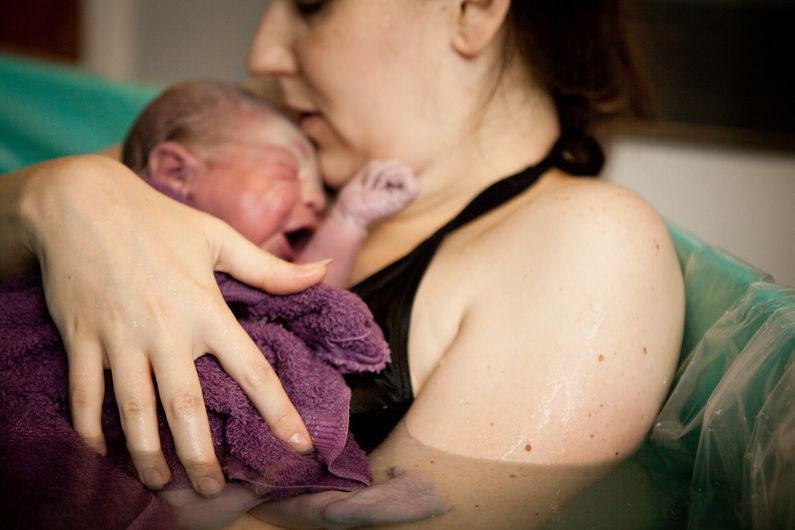Water babies: is it time to demedicalize childbirth?
- UdeMNouvelles
01/13/2023
- Béatrice St-Cyr-Leroux
A recent study shows most women would give birth in water as long as it's safe for their baby, but despite the benefits very few hospital facilities now offer this option.
Around 80 percent of women would be interested in giving birth in water, as long as the procedure poses no risks to their newborn.
At least, that's the conclusion of a survey of nearly 1,000 women in Quebec conducted by Thomas G. Poder, a professor at Université de Montréal's School of Public Health, along with colleagues at Université de Sherbrooke.
The study is the first to assess women’s preferences about water immersion during labour and childbirth that uses a "discrete choice" experiment model, a quantitative approach for identifying how different factors influence decision-making.
“Our study offers insights in favour of water birth, which is mostly offered at home or in birthing centres but very rarely in hospitals, where most women want to give birth,” said Poder. “These results suggest obstetric services should be diversified.”
Better aligning care with needs
The study shows that women are generally positive about the idea of labour or childbirth in water, and that offering this approach could be a good way to “align care and services with their preferences and needs,” Poder noted.
However, most hospitals don’t offer this option. Poder believes that expanding care services starts with educating women and healthcare professionals.
“Few people know much about water birth, while many believe that it's an 'unusual’ approach. We think it's important to give women better information about water birth and ensure physicians can clearly explain the risks and advantages of this procedure.”
Easing the transition to the outside
The main reason for immersing pregnant women in water during labour and especially during childbirth is to make it easier for the newborn to transition from the mother's amniotic fluid to the outside world.
The main advantages of this approach are that it makes mothers more comfortable and helps them relax, advocates say. They have less pain, don't require painkillers, avoid perineal tears (since warmth relaxes perineal tissue), need less intervention with medical instruments and, by extension, spend less time in labour.
Aside from these clinical benefits, water birth helps women take back ownership of their bodies and their birthing process, Poder said.
“Childbirth has become highly medicalized. Water birth takes this major life event out of the purely clinical domain while placing women in an environment that's more responsive to their needs. It's a way for them to take back control over their destiny.”
Although there are risks (of the baby breathing in water, of infection, of difficulty seeing the perineum), Poder stresses that the scientific literature indicates that these risks are minimal when adequately supervised and are comparable to the risks posed by conventional labour.
“Water birth is not recommended when there are complications, such as breech births, but it is very safe for low-risk births," said Poder. "We just need to open everyone’s minds so more birthing pools are installed in health facilities, and so we can do a better job of listening to what women want.”













